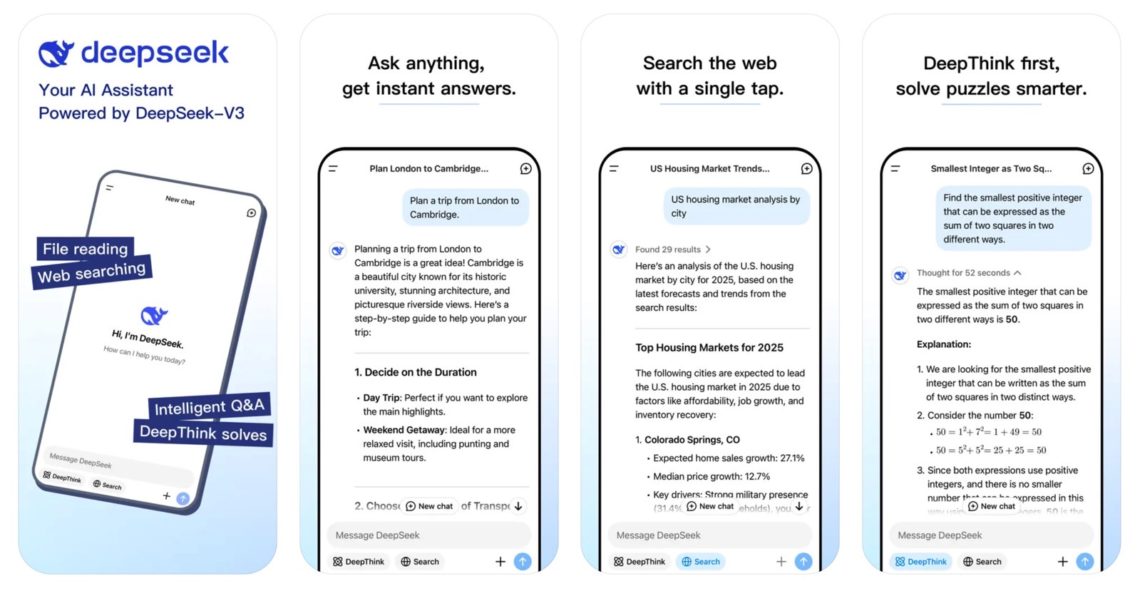DeepSeek AI went viral in January. The iPhone app topped the App Store charts as users wanted to experience the chatbot that challenged the supremacy of ChatGPT. The DeepSeek privacy policy soon became an important topic, which isn’t surprising for a new AI product. AI firms routinely want to use data from chats to train their LLMs. OpenAI does it with ChatGPT, too. You should always try to opt out of training when you sign up for any new AI product. If you can’t, then reconsider using it.
With DeepSeek AI, there was a different concern. DeepSeek is a Chinese company, so all the prompt data from its DeepSeek AI models is sent to China. All other user data is sent to China as well, just like TikTok.
This is enough of a worry for Western countries to consider banning DeepSeek. The US is reportedly considering a nationwide ban on DeepSeek, with the AI tool already having been prohibited on some government devices.
But a ban might not be necessary, considering what just happened in South Korea. The country actually banned the DeepSeek mobile apps a few months ago, starting a privacy-centric investigation of the AI app. The Personal Information Protection Commission (PIPC) concluded its investigation last week, finding that DeepSeek has been sending data to China and US companies without obtaining user consent. But the country still chose to allow the DeepSeek apps in its local app stores.
As a result, DeepSeek is now available on iPhone and Android in South Korea. The company updated its privacy policy with language that is specific to South Korea, and it will publish a privacy policy in Korean. While DeepSeek will have to obtain authorization from South Korean users to transfer data to China, it will still send that data to its home country rather than setting up servers in South Korea.
The PIPC published its findings late last week, per CNBC. The data protection authority found that DeepSeek collects personal data from South Korean users and transfers it to China without user consent.
The PIPC found that DeepSeek transferred AI prompts, device, network, and app information to a Chinese cloud company called Beijing Volcano Engine Technology Co. This company is affiliated with ByteDance, the owner of TikTok. However, the PIPC found that it’s a separate company from ByteDance and has no relationship with the latter.
The watchdog said that DeepSeek used Beijing Volcano to improve the security and user experience of the DeepSeek AI app. DeepSeek stopped transferring AI prompt data from Korean users on April 10th.
The PIPC told DeepSeek to destroy the AI prompt data transferred to Chinese companies and set up legal protocols for transferring personal user data to other countries. Other AI apps available in Korea also transfer data outside the country, but they ask for user consent first, something DeepSeek failed to do.
A few days after the PIPC published its findings, DeepSeek is available to download in South Korea, Reuters reports. Presumably, DeepSeek made all the changes the South Korean watchdog demanded to avoid a longer ban, and it’s now able to make its DeepSeek apps available in the country again.
DeepSeek remained available after the mid-February ban. Despite the privacy investigation, anyone who still had the mobile apps installed or installed the open-source build could still use the service. Now, new users can install the mobile apps.
DeepSeek also published an updated privacy policy that contains special provisions for European and South Korean users. In theory, that means DeepSeek in Europe and South Korea will enjoy better privacy protections than other markets.
In practice, you still have to trust DeepSeek with your data, which will continue to be stored in China. Anyone worried about the potential ties between the startup and the Chinese government might want to avoid using DeepSeek, even is the South Korean privacy watchdog lifted the ban, signaling the Chinese company will comply with the country’s privacy requests.
The US government has yet to announce a nationwide DeepSeek ban, temporary or otherwise. It’s also yet to implement the TikTok ban that has been batted around since last year.
The post DeepSeek avoids South Korea ban, but it still sends data to China appeared first on BGR.




